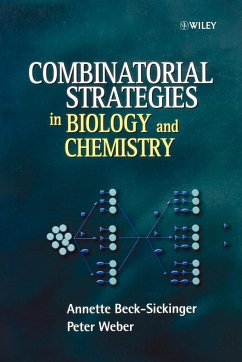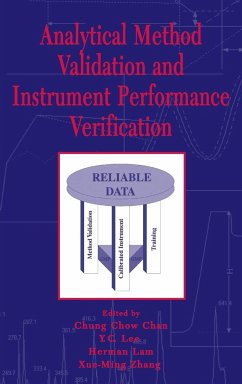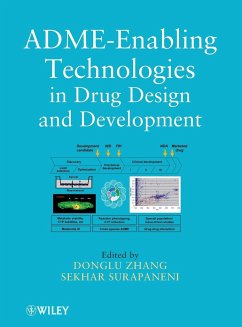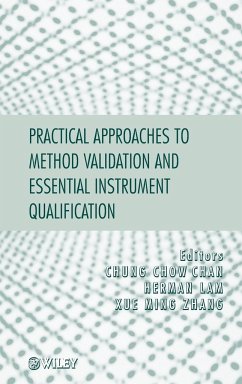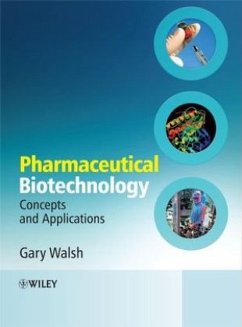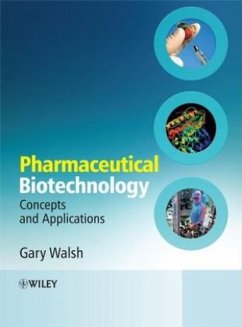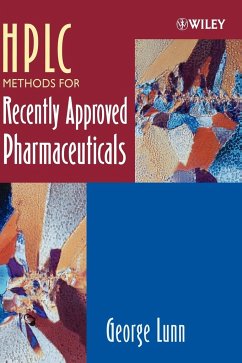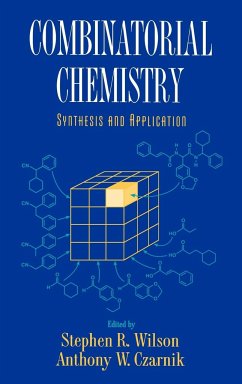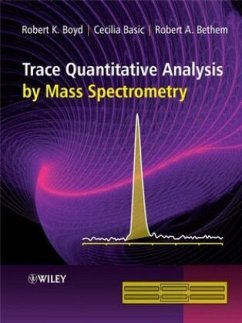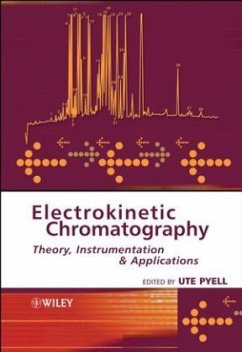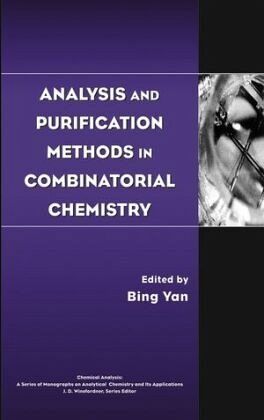
Analysis and Purification Methods in Combinatorial Chemistry

PAYBACK Punkte
94 °P sammeln!
One of the most exciting analytical events in the past decade is the rapid development of combinatorial chemistry. Analysis and Purification Methods in Combinatorial Chemistry delivers the latest in this fast-moving field. Part one of the book describes various approaches to monitor reactions on solid support and optimize reactions for library synthesis. Part two is dedicated to high-throughput analytical methods used to analyze the quality of the libraries. Part three discusses various high-throughput purification techniques. Part four applies analytical methods to post-synthesis and post-purification stages. The book contains contributions from the field's most-respected researchers and practitioners.
Quality measurement, control, and improvement in combinatorial chemistry
Combinatorial chemistry has developed rapidly in the past decade, with great advances made by scientists working on analysis and purification of a large number of compounds and the analysis of polymer-bound compounds. However, formidable challenges lie ahead of today's researcher. For example, high-throughput analysis and purification technologies must be further developed to ensure combinatorial libraries are "purifiable," and "drugable."
To this end, Analysis and Purification Methods in Combinatorial Chemistry describes various analytical techniques and systems for the development, validation, quality control, purification, and physicochemical testing of combinatorial libraries. A new volume in Wiley's Chemical Analysis series, this text has four parts covering:
_ Various approaches to monitoring reactions on solid support and optimizing reactions for library synthesis
_ High-throughput analytical methods used to analyze the quality of libraries
_ High-throughput purification techniques
_ Analytical methods applied in post-synthesis and post-purification stages
Drawing from the contributions of respected experts in combinatorial chemistry, this comprehensive book provides coverage of applications of Nuclear Magnetic Resonance (NMR), liquid chromatography/mass spectrometry (LC/MS), Fourier Transform Infrared (FTIR), micellar electrokinetic chromatography (MEKC) technologies, as well as other analytical techniques.
This eminently useful volume is an essential addition to the library of students and researchers studying or working in analytical chemistry, combinatorial chemistry, medicinal chemistry, organic chemistry, biotechnology, biochemistry, or biophysics.
Combinatorial chemistry has developed rapidly in the past decade, with great advances made by scientists working on analysis and purification of a large number of compounds and the analysis of polymer-bound compounds. However, formidable challenges lie ahead of today's researcher. For example, high-throughput analysis and purification technologies must be further developed to ensure combinatorial libraries are "purifiable," and "drugable."
To this end, Analysis and Purification Methods in Combinatorial Chemistry describes various analytical techniques and systems for the development, validation, quality control, purification, and physicochemical testing of combinatorial libraries. A new volume in Wiley's Chemical Analysis series, this text has four parts covering:
_ Various approaches to monitoring reactions on solid support and optimizing reactions for library synthesis
_ High-throughput analytical methods used to analyze the quality of libraries
_ High-throughput purification techniques
_ Analytical methods applied in post-synthesis and post-purification stages
Drawing from the contributions of respected experts in combinatorial chemistry, this comprehensive book provides coverage of applications of Nuclear Magnetic Resonance (NMR), liquid chromatography/mass spectrometry (LC/MS), Fourier Transform Infrared (FTIR), micellar electrokinetic chromatography (MEKC) technologies, as well as other analytical techniques.
This eminently useful volume is an essential addition to the library of students and researchers studying or working in analytical chemistry, combinatorial chemistry, medicinal chemistry, organic chemistry, biotechnology, biochemistry, or biophysics.



